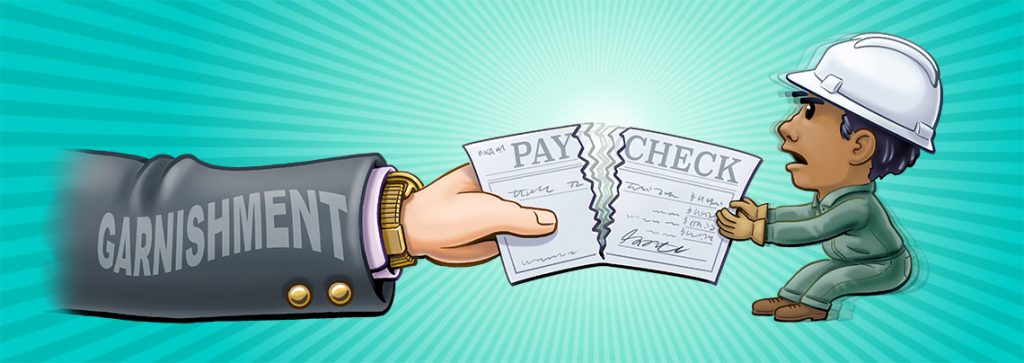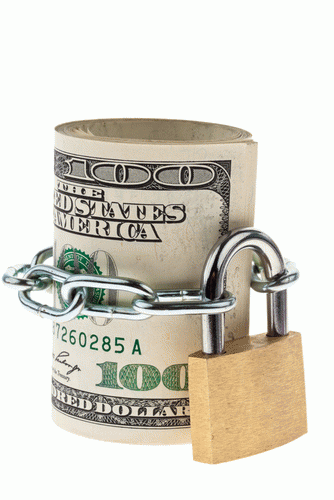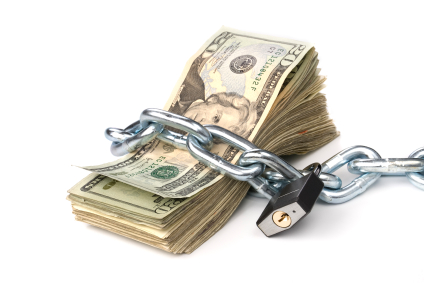Having your wages garnished can be a significant ordeal, and without knowing the laws that govern garnishment, many employees are blindsided when it occurs. However, a number of the federal provisions concerning wage garnishment are put in place to protect the income of employees and ensure that employers deal with them somewhat if wages must be withheld.
However, navigating through federal wage garnishment provisions is not easy. For instance, for those wondering exactly how much the maximum amount of income that can legally be withheld by a wage garnishment court order, it may take a bit of deciphering. For ordinary wage garnishment, the maximum amount that can be garnished is 25% of an employee’s disposable earnings or the amount by which the employee’s disposable earnings are higher than 30 times the federal minimum wage.
Naturally, this is not the simplest calculation to figure, especially if other questions need answering. For instance, what exactly are “‘disposable earnings” and how much is 30 times the federal minimum wage? This post will help explain some of those details and a few other particulars as well.
First of All, What is Wage Garnishment?
First things, first! Wage garnishment is a court-ordered withholding of an employee’s wages. Reasons for wage garnishment include payment of debts such as federal student loans and private debts or others to address other amounts that have lapsed such as child support payments.
Employee Protection from Discharge

Title III of the CCPA prohibits employers from firing or terminating the employment of a worker who experiences wage garnishment. That means employees cannot be fired because a debtor is collecting salaries at their place of work. According to the Act, the number of wages garnished is of no consequence for this “no discharge” rule to apply. Nor does it matter or that more than one proceeding is being conducted to garnish the wages.
Additionally, an employer is also prohibited under Title III from garnishing more than a specific set amount of income in one week. As mentioned this calculation is 25% of revenue or no greater than 30 times the minimum wage, which currently is $7.25
However, an employer is entitled to discharge an employee if more than one debtor requests wage garnishment. It’s essential to note that Title III may not apply to tips. This is because the CCPA applies to the personal ‘disposable’ earnings of employees, including salaries, and income for retirement or pension plans, but does not extend coverage to tips.
Employers Must Recognize The Lesser Amount of Garnishment
The amount of wage garnishment can sometimes be different under federal law than under state law. When there is a discrepancy between the amount under federal and state law, an employer is obligated by law to garnish the lesser amount.
Wage Garnishment Complaints
When an employee experiences violations of Title III of the CCPA concerning the garnishment of wages, a complaint should be filed with the Wage and Hour Division of the Department of Labor. The Wage and Hour Division has over 200 offices in the country, and all services are free and confidential.
When filing a complaint, be sure to include all necessary contact information and information about your employment, such as the name and address of your manager or supervisor, the type of work you do, the position held, and the precise nature of your wage garnishment complaint.
Wage Garnishment Violations May Result in Penalties or Sanctions!

The CCPA is a federal law that covers all employers and all employees receiving personal earnings in all 50 states, the District of Columbia, and within all U.S. territories. When an employer violates the provisions of the CCPA, he can and should be held liable. This could result in several penalties and sanctions.
Failure to garnish wages properly may also result in penalties and fines. For instance, an employer can expect to pay at least a $1000 fine and serve at least one year in jail for willfully violating Title III provisions on wage garnishment.
Employment Rights Attorneys Are Here to Help

The best way to address a wage garnishment issue is to consult a competent attorney with experience dealing with a wide variety of employment law issues. Often it takes the skill and expertise of an attorney to get the attention of employers who are reluctant to follow the law or who are unaware of the consequences of their actions concerning employee rights.
Facing Wage Garnishment Issues?
If you’re facing wage garnishment issues in Florida, whether quite small or very complicated and want to make sure that your wages are being garnished correctly, NEXGEN ACCOUNTANTS is here to give a helping hand! With a team of experienced accountants, they work hand in hand with various individuals, corporations, partners, and non-profit organizations by providing a full spectrum of accounting and taxation services ranging from payroll services, delinquent taxes to IRS problems.





great share and thanks for this information.
great share and thanks for this information.
off to share this post now
excellent information.so, thanks for putting top notch content all the time